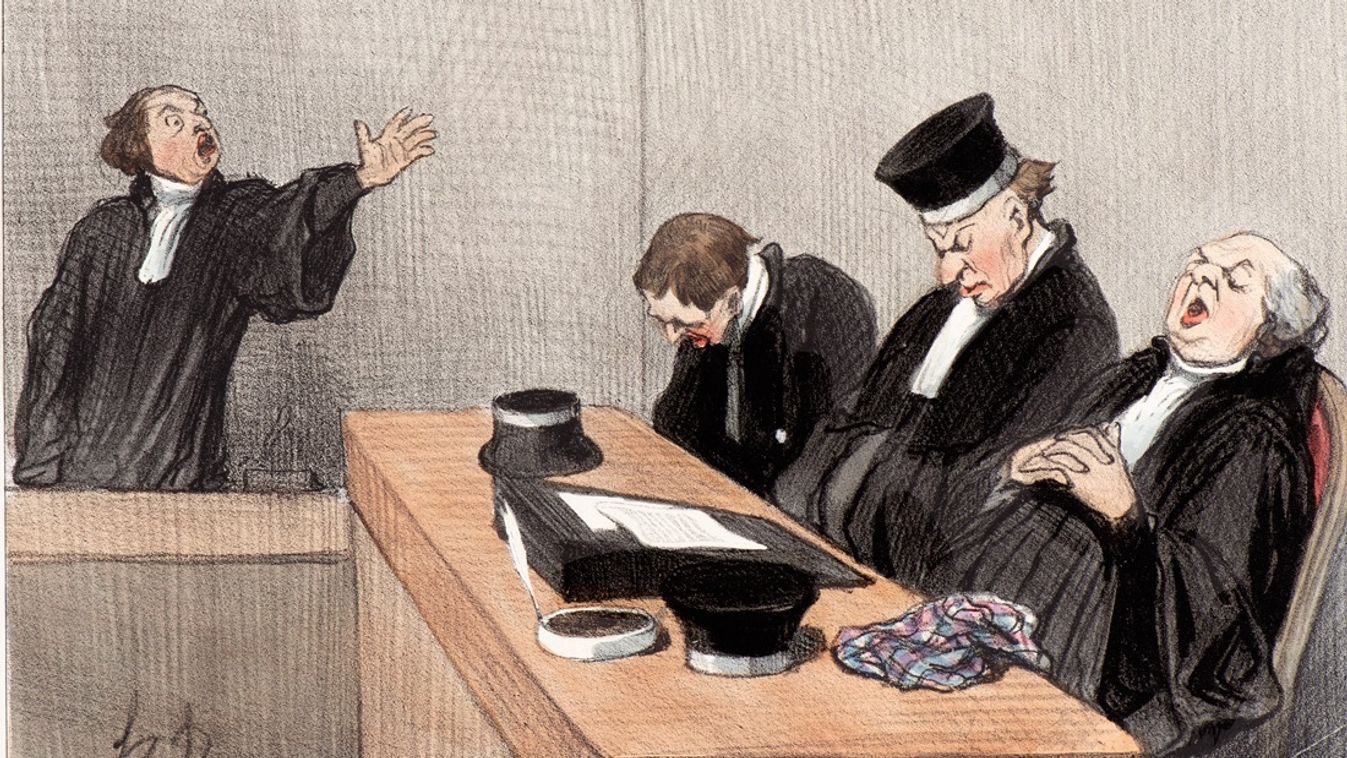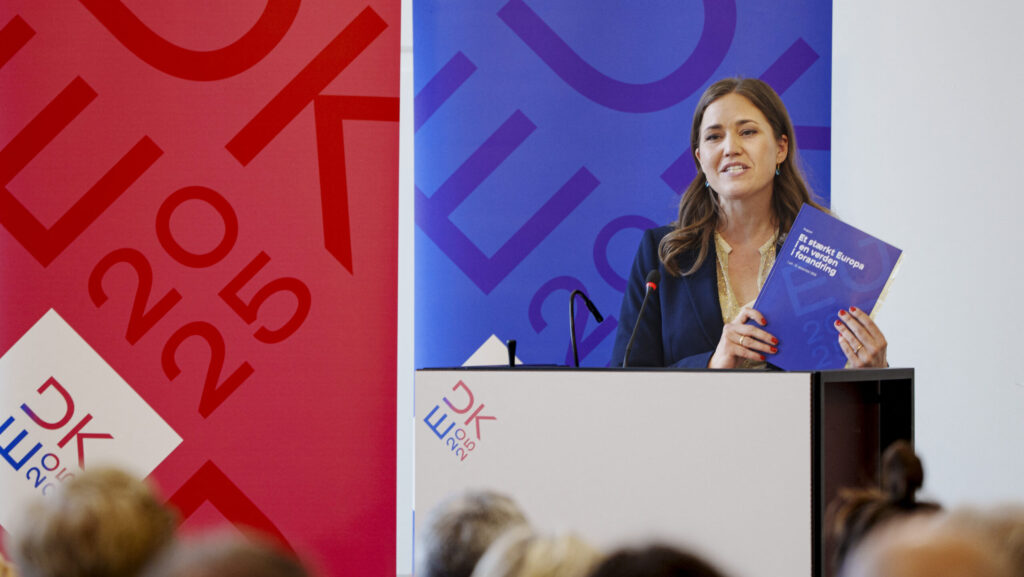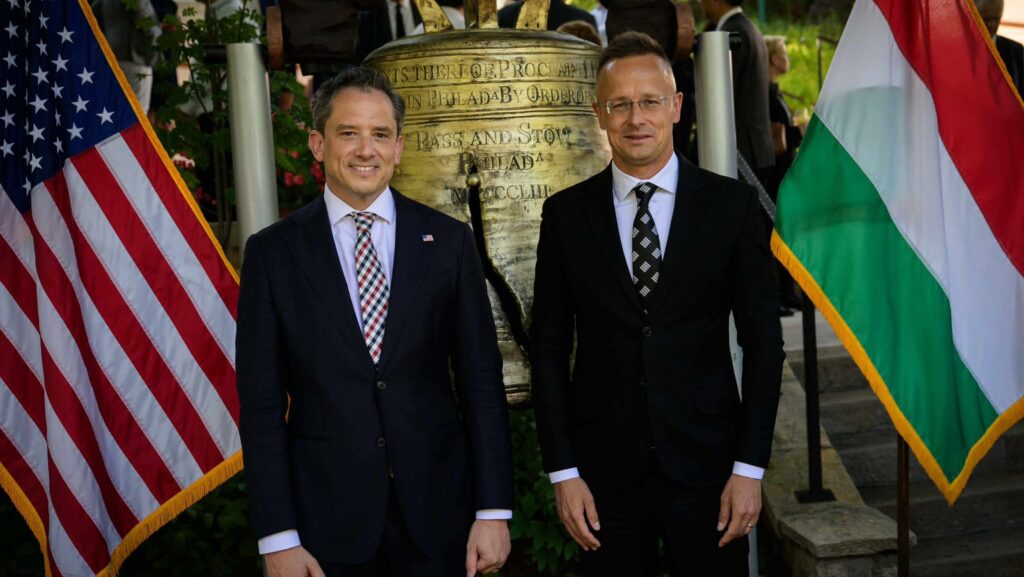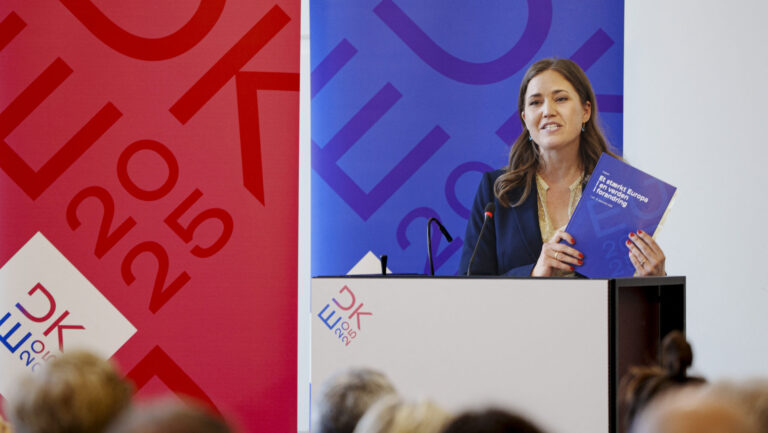Gaëtan Cliquennois is a Research Fellow at the French National Centre for Scientific Research (Centre national de la recherche scientifique) and serves as the Deputy Director of the institute The Law and Social Change (DCS) Laboratory (Laboratoire Droit et Changement Social). His area of expertise is the growing privatization of European justice and fundamental rights. He was a visiting professor at the College of Europe until 2017. He has contributed to a number of important periodicals including the European Law Journal, Law & Social Inquiry, and The British Journal of Criminology. In a 2021 interview with Mandiner, published in Hungarian, the professor pointed out that both the European Court of Human Rights, based in Strasbourg, and the Court of Justice of the European Union want to play the role of a constitutional court on the continent. However, both forums are under the influence of, among other players, organizations linked to George Soros.

***
Western-type political systems are liberal democracies that rest on two, ideally equally balanced pillars: liberalism and the concept of majoritarian democracy. However, in recent times this balance has been upset in favour of the constraints on the majority’s will resulting from liberalism. This is especially true in Europe, where various international judicial forums have claimed an increasing role in shaping the law. How do you see the role of international judicial forums in Europe in this respect?
There is a fairly broad consensus in academia that the European courts—by which I mean the Court of Justice of the European Union (CJEU) and the European Court of Human Rights (ECHR) in Strasbourg—are increasingly seeking to play a constitutional role, typically with a human rights and fundamental rights focus. In this process, the influence and control of these fora over the states has indeed gradually increased.
How and with what approach do these courts use their constitutional power to address legal and social problems?
The two courts approach the question of what policy measures can ensure individual freedom along the lines of an increasingly extreme liberal vision. This is particularly evident in the judicial interpretation of religious freedom, the status of women and gender, sexuality, the institution of the family, conception and foetal life, and the right to life and health. In these respects, the courts favour religious pluralism and secularization rather than Christian traditions, and artificial social constructions (see for example gender theory) rather than natural gender roles. It is also evident in the practice of the courts that the formerly dominant heterosexual model is now clearly outweighed by LGBTQI rights, just as the traditional family model has become inferior to alternative forms of coexistence; the list goes on.
Where does this liberal vision you mentioned come from?
The concept is based on the convergence of central European policymaking and jurisprudence, the Open Society Foundation (OSF), and the NGOs it funds. To give just a few examples, this background has made the issue of discrimination against and advocacy for specific ethnic, sexual, and religious minorities (eg migrants, LGBTQI people, Muslims), the tension between human rights activists and nation states, but also the issues of counterterrorism, free elections, and the media, a cornerstone issue.
In your most recent book, European Human Rights Justice and Privatisation — The Growing Influence of Foreign Private Funds, you wrote about external influence over the courts. Can you identify a specific person or organization concerning this influence?
Yes. Private foundations dedicated to the promotion of human rights (such as the George Soros-led Open Society Foundation or the Ford Foundation) and the NGOs they fund have, typically since the late 1990s, gradually increased their influence over the CJEU and the ECHR in Strasbourg.
Is it a spontaneous process or is there a specific intention to do so?
Part of the process is linked to the economic crisis: it has resulted in a reduction in public funding for NGOs, which, therefore, have increasingly relied on money from private foundations, which have turned their funding into leverage. At the same time, private sector advocacy began to develop along new strategies as well, so that overall, the various foreign interest groups and private foundations gradually began to play an increasing role in the administration of fundamental justice.
‘The various foreign interest groups and private foundations gradually began to play an increasing role in the administration of fundamental justice’
How did these organizations become able to do this?
Through a gradual building process. These organizations have set up their own teams of experts specialized in the field of procedural law and, meanwhile, have increased the financial resources allocated to NGOs. At the same time, they have brought actions before the CJEU and the ECHR in Strasbourg, thus becoming able to play a significant role in shaping the content of the judgements handed down by the courts, the content of which necessarily influences both the evidentiary procedure and the judgements handed down based on it. Some of these judgements have a direct impact on the content of human rights and the direction of fundamental rights protection.
Can these organizations directly influence the quality of justice in Europe?
Yes, and the ability of the private sector to influence both the input and the output, and even the structure, of European fundamental justice has several effects. For example, it can turn justice against certain countries, but also in favour of certain private foundations. As a result, however, private foundations that are ‘second-rate’ compared to the OSF may find themselves in a situation where they have no access to European judicial fora at all or are unable to implement effective human rights protection.
On what do you base your assumptions above?
In the book, the above assertions are supported by information found in internal documents and public documentary evidence of European judicial fora, NGOs, and private foundations that have shaped the European fundamental rights system, which is under continuous legal development.
The fundamental rights system is therefore under continuous and conscious legal development.
Yes, and generally speaking, as a result of the efforts of rights defenders, the role of private foundations (such as the OSF), human rights organizations (such as the European Human Rights Support Centre), and NGOs in reforming and reinterpreting the ECHR has increased. Strengthening this reform effort in litigation and law enforcement, these organizations are also lobbying the European Commission or the Council of Europe, which has a fundamental rights profile outside the EU.
In practice, this means regular contacts and technical briefings with diplomats, ambassadors, ministers, and other prominent figures. On these occasions, the organization has the opportunity to push forward issues that are of priority to it. In this way, pressure can be kept on the EU institutions and the Member States, which are also responsible at a national level for implementing ECHR judgements.
‘These organizations are also lobbying the European Commission or the Council of Europe, which has a fundamental rights profile outside the EU’
Which of the two forums is more influenced?
Comparing the two bodies—the European Court of Human Rights and the Court of Justice of the European Union—, the Open Society Foundation has less influence on the latter than on the ECHR in Strasbourg, which it is directly involved in reforming. In the case of the CJEU, this influence manifests more indirectly through pressure on the European Parliament and the European Council. In this respect, it is worth noting that both the European Court of Justice (ECJ) and the ECHR have judges who have previously worked either specifically for the Open Society Foundation or other NGOs.
Can you give an example?
Of course. For example, in the case of the European Court of Human Rights in Strasbourg, a senior Bulgarian judge was formerly a board member of several Open Society Justice Initiative affiliates. A Romanian national judge who, before taking up his post as a judge of fundamental rights, had a similar career, having served on the board of an NGO called the International Commission of Jurists. But to give a Polish and a Hungarian example as well, the ECJ also has a Polish national judge who was formerly a member of the Helsinki Committee in Poland, and a Hungarian judge sitting on the European Court of Human Rights in Strasbourg who was previously a lecturer at the CEU, sponsored by the Open Society Foundation.
The Court of Justice of the European Union plays a key role in the development of EU law, compared to the European Parliament or the European Council. How can these globally influential financial spheres of interest influence the direction of European integration and what future efforts can be expected in this direction?
I have not addressed this question in my book. What I can say for certain, however, is that the CJEU has for some time been more apt to be portrayed as a ‘rubber stamp’ [sic] for the European Commission than as an independent court—thanks in part to the recurrent personal conflicts of interest, or if you like, the revolving door effect, as it is known in the legal literature. In this respect, as I have already mentioned, the priorities of private foundations engaged in lobbying activities include gaining increasing influence in the European Commission and the European Parliament. This serves to deepen European integration and the neoliberal scenario that underlies it, as well as to advance the Western vision.
Can we say that these private actors with global influence are paying special attention to East–Central Europe?
Yes. By reviewing European judicial case law, the book aims to show that cases against Eastern Europe and Russia are quite over-represented in the ECHR’s caseload, actively shaped by the private foundations mentioned above. If we look at the organizations that have typically brought actions against certain Eastern European countries, we can conclude that a rather narrow range of organizations, such as the OSF and other NGOs, are able to shape the ECHR case law against these countries.
In what way is this happening?
These NGOs can play such a role because of generous donations from a narrow group. However, it is not just informal donations; there are also various formal channels to encourage their activities. I am talking about initiatives and projects aimed at launching as many lawsuits as possible for human rights violations and ending with convictions against countries that are called nationalists.
Is this kind of awareness also present in the choice of cases?
Indeed, the cases in which the Open Society Foundation litigates, either directly or indirectly through a representative, are the result of a conscious selection: they are chosen according to their expected political and legal impact and only launched in specific countries. This is how the OSF—and the several NGOs it mobilizes—usually bring cases against Central and Eastern European countries, such as Romania, Slovenia, Poland, or Hungary; the Open Society Justice Initiative brought 47 cases before the ECHR between 2004 and 2018, 27 of which were against Eastern European countries or Russia.
What is the impact of all this?
In sharp contrast to this selective approach—and this is also discussed in the book—is the fact that all the while, fairly important issues are being lost simply because they are outside the scope of the interest of these foundations and organizations. The United Nations is trying to draw attention to several problems—such as sexual abuse, child pornography, and human trafficking—, where there are very few prosecutions by private foundations and the NGO network that they operate, even though very serious conventions have been adopted for these crimes, and these international treaties all provide a solid legal basis for any possible proceedings.
‘Fairly important issues are being lost simply because they are outside the scope of the interest of these foundations and organizations’
Isn’t that leading to a loss of function?
Yes, it is, because these foundations and NGOs create a rather paradoxical situation even in areas where they would otherwise have had a mission. For example, they regularly engage in self-contradiction when they undertake to defend the rights of Muslims, women, or LGBTQI people. But let me give you an even more general example: these organizations and foundations take almost no responsibility for representing otherwise vulnerable, poor people—those who may be disadvantaged by government economic or social policies. This is a good illustration of how the right of individuals to effectively assert their rights before the ECHR and the CJEU is undermined whenever they suffer economic or social harm.
What solution would you propose?
I believe that there is both a need and an opportunity for a healthy reform of the judiciary in fundamental rights, for example through democratic control over the selection mechanism of judges and the creation of new conflict of interest rules. But so too could the structures that fund the protection of fundamental rights, including the case law itself, be made more transparent. For, despite the fact that these foundations and the NGOs they run claim to represent and defend society as a whole, this is far from being the case; they are merely seeking to promote their own private interests.
Click here to read the original article.








